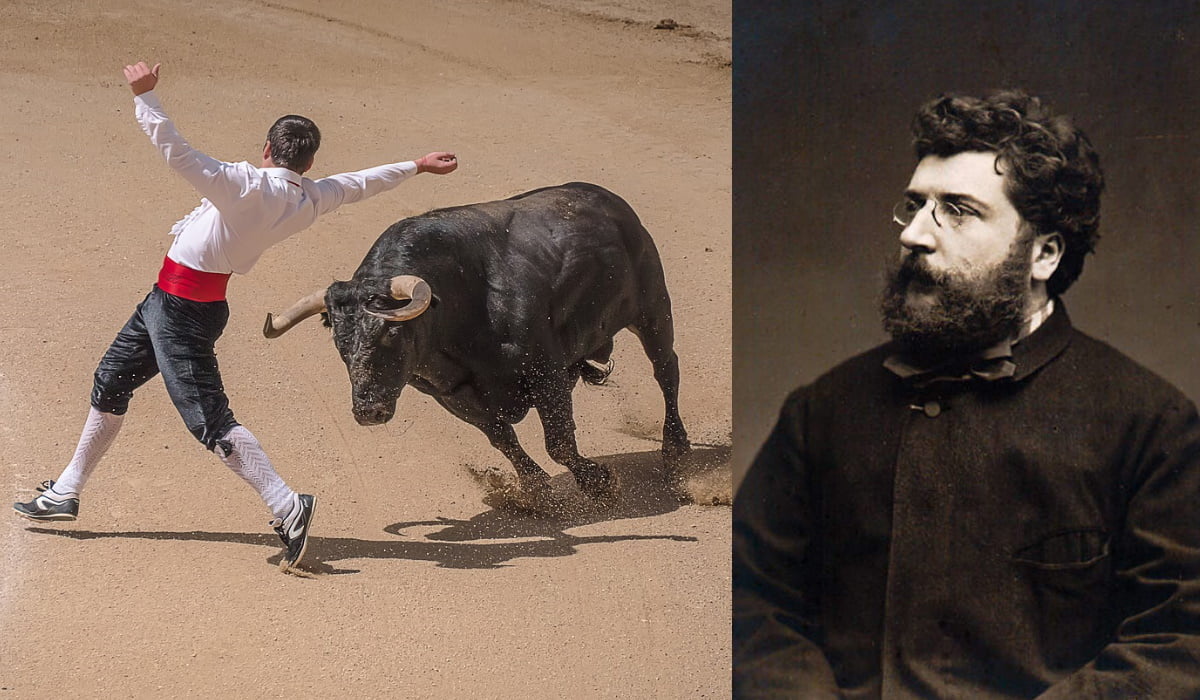In many sources you can read that the word “toreador” does not exist in the Spanish language - it was invented by the composer Georges Bizet to fit into the size of the famous couplets of the matador Escamillo from the opera “Carmen”. We checked if this is true.
This information is widespread in the music world and beyond. As a rule, sources indicate that in Spanish a participant in a bullfight is called a matador or bullfighter. However, both words lacked one syllable for use in Escamillo's aria, and the composer (or his librettists) had to invent a new term. For example, you can read about this on the website San Francisco Opera, in Burton Fisher's book"Carmen" Bizet", on the linguistic portal educalingo, V biographies artist Helene de Kooning and even in interviews with matadors Paco Camino And Elchina Babekhanova. Touched themes back in 1965, Soviet poet Lev Oshanin:
“And until now I didn’t think
Taking Bizet's Spaniards for faith,
What you won't hear here: "Toreador" -
It sounds shorter and louder: “Torero.”
Georges Bizet's opera Carmen was staged in 1875 with a libretto by Henri Milhac and Ludovico Halevi. The composer survived the premiere of the opera by only three months - countsthat he was mortally shocked by the stunning failure. Fame for the work came many years later. Here is a fragment from the famous couplets of matador Escamillo in the original language (French) and in Russian translation:

Indeed, it is impossible to insert the words “torero” or “matador” here without changing the rhythm.
Many people know that toro means “bull” in Spanish. The derivative word torero, referring to the bull's opponent in a bullfight, is widespread in Spanish and has migrated into many other languages, including Russian. And having a very similar and completely synonymous word seems really redundant. Nevertheless, the term toreador today is found in many dictionaries, including the one posted on the website Royal Academy of the Spanish Language.
It may seem that the issue is closed, but it is not. Language is a living thing and subject to change. The word toreador could, having been born in a French libretto, become so popular (and the glory of Escamillo’s aria is truly limitless) that it returned to its native Pyrenees. Therefore, sources no later than the 19th century can give us a truly objective answer. An important argument in favor of turning to them is the authoritative Merriam-Webster dictionary, which assertsthat the first known mention of the word toreador dates back to 1618, meaning “bullfighter.”
A simple search confirms Merriam-Webster's information. Apparently, it only applied to English-language sources, since there are also plenty of older books with this word in Spanish. The earliest available is "Conversations and dialogues» 1551 by the Seville writer Pedro Mejía. In it, one of the conversation participants talks about wounding a horse and learning to be a bullfighter. Moreover, the book was written four years earlier, and book printing in Spain at that time was not even 80 years old. And in the Spanish-Franco-Italian dictionary published in 1609 saidthat a toreador is someone who is “good at attacking bulls.” However, the word toreador can hardly be considered a designation only of a good bullfighter, since in poem by Julian de Almendariz, published in 1603, the phrase el bien toreador is found - “a good bullfighter”. Apparently, “good” in the dictionary should be understood as “beautiful,” that is, in accordance with the spirit of bullfighting. In the same dictionary you can also meet the phrase cauallo toreador - “toreador’s horse.” Horse again? We'll find out why later.
In the meantime, it turns out that neither Bizet nor his librettists experimented with language - the word toreador existed in both Spanish and French (there is a word of the same name drama 1838), and in other languages. Then what is its difference with the same root torero? Sources they say that the word atoreador is a dialect designation for a bullfighter in Andalusia. Perhaps the word toreador originally came from the same place - remember that Pedro Mejia was from Seville. And then, stylistically, the creators of the opera, which takes place in the capital of Andalusia, were absolutely right.
But there is another interesting point. In academic editions of the Spanish (Castilian) dictionary up to 1884 (for example, in 1783, 1803, 1832, 1869 And 1876 years) the word toreador is given the following definition: “One who fights with bulls. Usually used of those who fight on horseback, as opposed to bullfighters." However, in 1884 edition the second sentence disappears completely and has not returned to the main Spanish dictionary since then.
Thus, in the second half of the 19th century, the word toreador lost its meaning of “bullfighter on a horse,” at least as a basic one, and began to mean simply any bullfighter. Is Bizet's opera, which exploded at the same time, to blame for this? Hardly. After all, the same short definition can be found in “The latest Spanish dictionary", published in 1867 in Catalonia. So it seems like a normal evolution of the meaning of a word. Perhaps caused by the fact that the bullfighter, the main participant in bullfighting, in the 18th century became on foot, and his assistant, a picador, is now riding. Of course, the word toreador is still used in the narrow sense today, but rarely. And the magnificent Escamillo may be on horseback only figuratively:
Not true
Read on topic:
1. Pedro Mejia. "Conversations and dialogues"
2. "Toreador" in the Merriam-Webster Dictionary.
3. "Toreador" on the website of the Royal Academy of the Spanish Language.
If you find a spelling or grammatical error, please let us know by highlighting the error text and clicking Ctrl+Enter.







